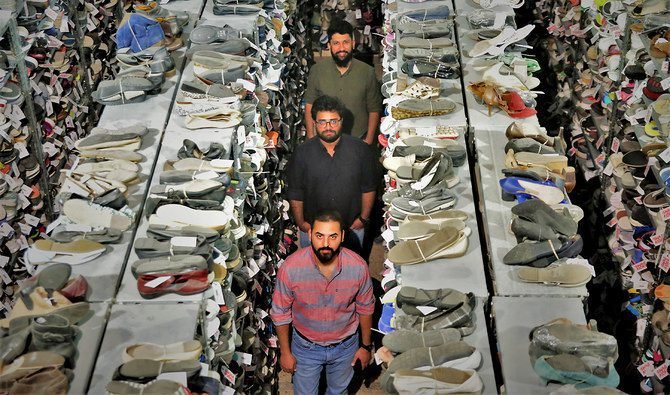Swag Kicks, a Karachi-based online marketplace for pre-owned clothes, has raised $1.2 million in a seed investment round sponsored by foreign venture capitalists (VCs) and local angel investors, according to the co-founder of the firm on Tuesday.
Swag Kicks is the “go-to sustainable fashion platform” for Pakistani millennials and generation Z, according to its website. The firm claims to have serviced over one hundred thousand consumers and has over twenty-five thousand listed items, including footwear, bags, apparel, and accessories.
Angel investors are entities that contribute funds in exchange for equity in startups or enterprises. This week’s investment round was led by i2i Ventures and included famous angel investors such as TechStars Toronto, CrossFund, and others.
Nofal Khan, co-founder of Swag Kicks, stated that the cash would be used to build up inventories and stockpiles, extend market reach, and offer innovative technology to manage expanding demand.
The startup was created in 2019, but as a result of the coronavirus epidemic, its business activities had to be scaled up. However, the commercial slump ended, and Swag Kicks recovered by securing $200,000 in pre-seed capital at the beginning of 2021.
The firm claims to be the first of its kind to attract foreign investment in used clothing.
“We are the first to attract international finance, we have digitised Lunda (second-hand clothing) in Pakistan, and we offer used clothing and streetwear to customers across Pakistan under the name “pre-loved fashion,” Khan said.
“We sell original global brands at the lowest prices, making them accessible to the average Pakistani,” he continued.
The firm provides global sneakers and streetwear to Pakistan by procuring “pre-loved fashion” from around the globe, washing and sanitising the goods before to advertising them on the platform.
Khan stated, “Our platform serves millennials and Gen Z so they can express themselves through this form of circular fashion in response to its growing demand.”
Swag-Kicks offers pre-owned versions of popular brands including Adidas, Nike, Timberland, Jordans, Puma, Levis, and others. Venture capitalists view the fundraising round as a significant development given Pakistan’s efforts to combat severe macroeconomic issues.
“International funding for startups will continue to dry up in 2023,” said Kalsoom Lakhani, co-founder and general partner at i2i Ventures. Pakistan’s socioeconomic backdrop does not help.
“However, all of these problems present enormous opportunities,” she continued. “Swag Kicks and other plays in the circular fashion space are excellent examples of this.” When consumer spending declines, thrifting and secondhand apparel become popular options, according to Lakhani.
“For us, as Pakistan-focused venture capital funds, it’s about investing in companies that are interesting due to this environment and reflect changing attitudes,” she added.
According to multiple investment sources, Pakistan experienced a large capital surge in 2021, when startups garnered over $360 million, followed by a decline to approximately $350 million in 2022.
As consumer desire turns towards circular fashion, there is an increase in the global import of secondhand apparel.
The global market for secondhand goods is expected to increase by 127 percent by 2026, reaching an estimated $218 billion. According to the New York-based investment management firm Morgan Stanley, this is partially due to customers’ knowledge that their individual consumption habits have a substantial impact on the environment.
As inflation rises and more people are forced into poverty, Pakistan continues to be one of the leading importers of used clothing. Dr. Hafiz Pasha, a Pakistani economist, predicts that this year, 42.5% of the population would be living below the poverty line, up from 36.5% in the previous fiscal year, due to a fall in wages, an increase in unemployment, and a sharp rise in costs.
By extending its market penetration, Swag Kicks intends to capitalise on the issues that rising inflation and decreased spending have generated for customers.
Misbah Naqvi, co-founder and general partner of i2i Investments, stated, “Pakistan’s secondhand clothing market is large, but the supply side is highly fragmented.”
“The Swag Kicks team is able to operate at this scale due to the sophisticated back end they’ve developed, which includes an in-house warehouse Software as a Service (SaaS) product with tremendous potential,” Naqvi explained.
During the most recent fiscal year, Pakistan imported 978,699 metric tonnes of preloved or worn apparel valued over $433 million, an increase of 33.5 percent in terms of quantity and 40 percent in terms of value compared to the previous fiscal year.
